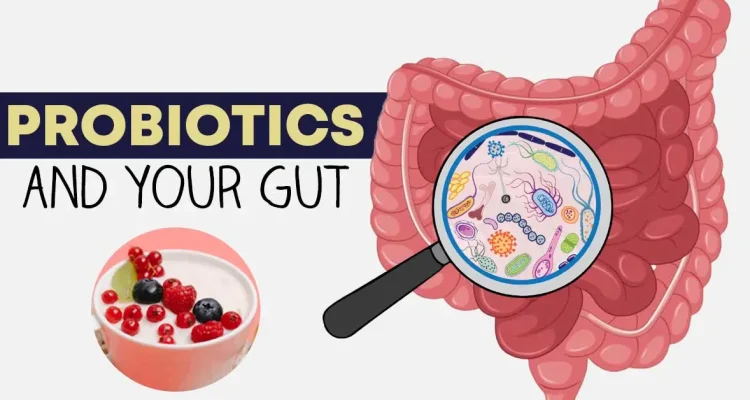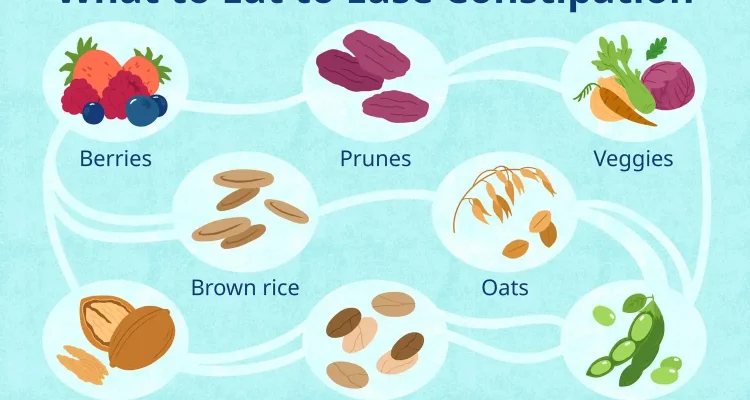Maintaining natural digestive health for kids is essential for their overall well-being and development. Digestive issues can impact a child’s mood, sleep, and general health. Here are some natural and effective home remedies and practices to promote digestive health in children.

1. Probiotics for Gut Health
Probiotics are useful microorganisms that assist preserve a healthful intestine flora. Incorporating probiotic-rich foods into your child’s diet can improve their digestive health.
- Yogurt: Choose plain yogurt with live and active cultures. It’s an excellent source of probiotics that can enhance gut health. Add fresh fruits to make it more appealing to kids.
- Kefir: This fermented milk drink is rich in probiotics and has a tangy flavor that some kids enjoy. You can eat it as is or upload it to a smoothie.
- Fermented Foods: Foods like sauerkraut, pickles, and miso contain beneficial probiotics that support digestive health. Introduce these gradually and in small amounts.
2. Fiber-Rich Foods
A diet high in fiber helps maintain regular bowel movements and prevents constipation. Ensure your child consumes a variety of fiber-rich foods.
- Fruits and Vegetables: Incorporate a range of fruits and vegetables such as apples, berries, carrots, and broccoli. These foods are not only high in fiber but also provide essential vitamins and minerals.
- Whole Grains: Foods like oatmeal, whole-wheat bread, brown rice, and quinoa are excellent sources of fiber. They help keep the digestive system functioning smoothly.
- Legumes: Beans, lentils, and peas are packed with fiber and protein. Add them to soups, stews, and salads to boost your child’s fiber intake.
3. Hydration
Proper hydration is crucial for digestive health. Encourage your child to drink plenty of fluids throughout the day.
- Water: Water is the best choice for hydration. Make sure your child drinks water regularly, especially if they are active.
- Herbal Teas: Mild herbal teas like chamomile or peppermint can aid digestion and soothe the stomach. Serve these teas cooled and in small amounts.
4. Herbal Remedies
Certain herbs can help with digestion and soothe common digestive issues.
- Ginger: Ginger can help with digestion and alleviate nausea. Make a mild ginger tea by boiling ginger slices in water, then cool it down before serving.
- Peppermint: Peppermint tea can help relax the digestive tract and reduce discomfort from gas or bloating. Ensure it is mild and given in small sips.
5. Healthy Eating Habits
Adopting healthy eating habits can significantly improve digestive health.
- Regular Meals: Serve regular meals and snacks to maintain consistent digestive function. Avoid long gaps between meals.
- Chewing Thoroughly: Encourage your child to chew their food thoroughly to aid digestion. Eating slowly also helps them recognize when they are full.
- Avoid Overeating: Teach your child to eat until they are satisfied, not full, to prevent overeating, which can lead to digestive discomfort.
6. Physical Activity
Regular physical activity promotes healthy digestion.
- Daily Exercise: Encourage your child to engage in daily physical activities, such as playing outside, riding a bike, or participating in sports. Physical activity helps stimulate digestion.
- Family Walks: Going for a walk after meals can help with digestion. Make it a family activity to promote bonding and health.
7. Natural Remedies for Specific Digestive Issues
Constipation
- Prune Juice: A small amount of prune juice can help relieve constipation. Start with a little and monitor your child’s response.
- Flaxseed: Add ground flaxseed to smoothies or yogurt for a fiber boost. Flaxseed softens the stool and promotes regular bowel movements.
- Bicycle Legs: Move your child’s legs in a bicycling motion to help stimulate bowel movements.

Diarrhea
- BRAT Diet: Bananas, rice, applesauce, and toast can help firm up stools and provide gentle nutrition.
- Hydration: Ensure your child drinks plenty of fluids to stay hydrated. Oral rehydration solutions can help replenish lost electrolytes.
- Probiotics: Probiotic-rich foods or supplements can help restore gut balance.
8. Avoiding Common Triggers
Identify and avoid foods that may cause digestive issues.
- Limit Processed Foods: Reduce the intake of processed and sugary foods that can disrupt digestion. Opt for whole, natural foods instead.
- Identify Food Sensitivities: Monitor for and avoid foods that may cause allergies or intolerances, such as dairy, gluten, or certain fruits and vegetables.
9. Mindful Eating
Help your child develop mindful eating habits to support their digestive health.
- Stress Reduction: Teach your child stress management techniques like deep breathing and mindfulness, as stress can negatively impact digestion.
- Family Meals: Eating together as a family in a relaxed environment can promote better digestion and encourage healthy eating habits.
10. Supplemental Support
Consider supplemental support if necessary, but always consult with a healthcare provider first.
- Digestive Enzymes: If recommended by a healthcare provider, digestive enzyme supplements can help children who struggle with digesting certain foods.
- Prebiotics: Foods like bananas, onions, and garlic can help feed beneficial gut bacteria, supporting overall digestive health.
Conclusion
Promoting natural digestive health for kids involves a combination of healthy eating habits, regular physical activity, and the use of gentle, natural remedies. By incorporating these practices, you can help ensure your child’s digestive system functions smoothly, contributing to their overall health and well-being. Always consult with a healthcare provider for persistent or severe digestive issues to ensure your child receives the best care.